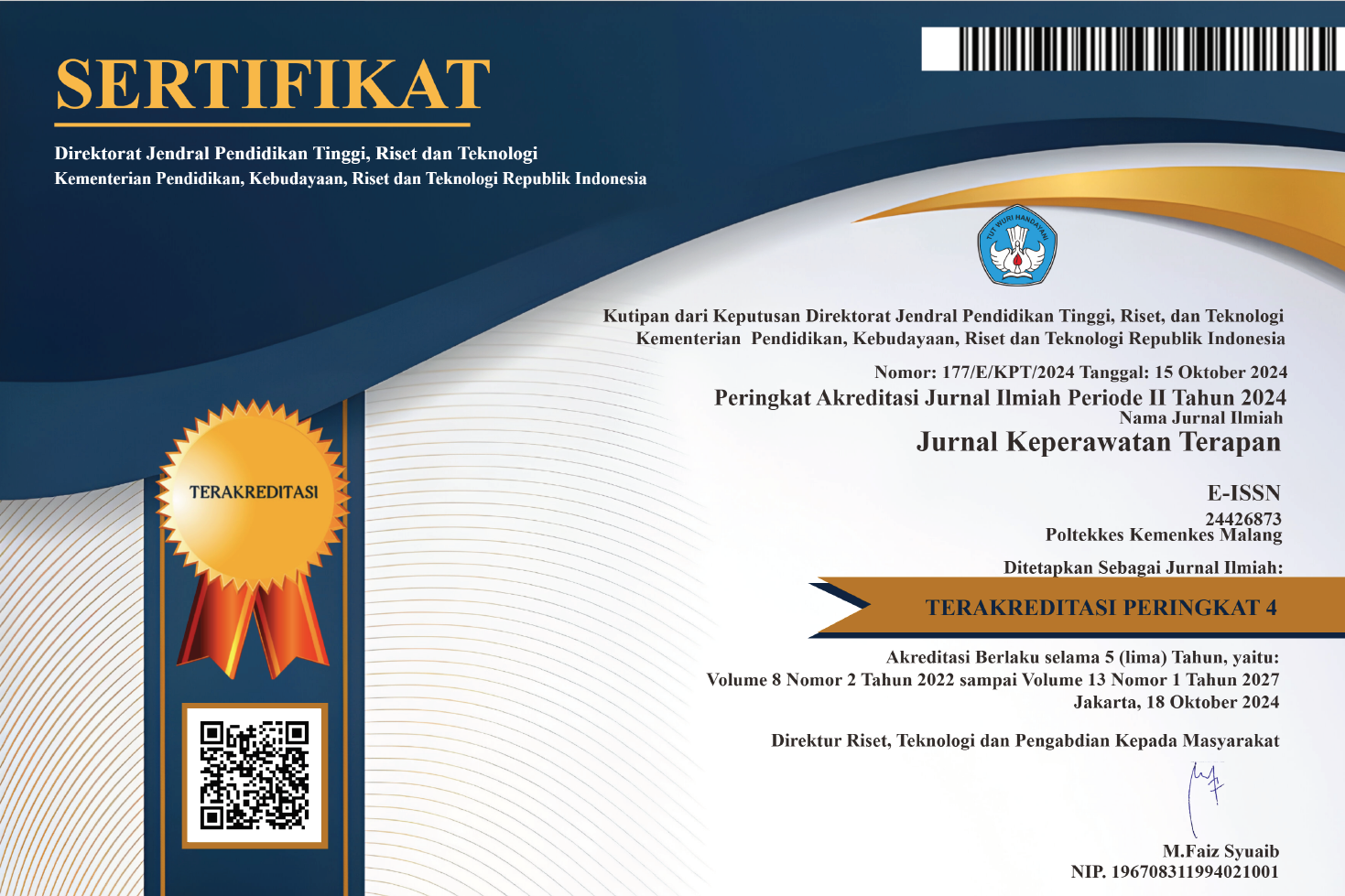Efektifitas Hybrid Learning Terhadap Keterampilan Laboratorium Resusitasi Jantung Paru Pada Mahasiswa Keperawatan
DOI:
https://doi.org/10.31290/jkt.v10i1.4348Abstract
Cardiac Pulmonary Resuscitation (CPR) is an important skill that nursing students must master. The pandemic period and the development of the digital era have become a challenge in teaching clinical skills to nursing students. One of the methods that is considered effective is Hybrid learning, which is a combination of online and conventional learning. Studies on the effectiveness of hybrid learning, especially in clinical skills CPR, are still very limited. This study aims to determine the effect of hybrid learning on skills of Cardiopulmonary Resuscitation (CPR) of Nursing students of Poltekkes Kemenkes Malang. This research is a quasi-experimental study with a posttest only control group design. The sample consisted of the intervention group and the control group consisted of 68 students. The research instrument uses CPR Standard Operational Procedure in the institution. The results showed that the skills mean of the blended learning intervention group was lower than the conventional learning method control group. Statistical test results using Mann Whitney showed that there was no significant effect of the hybrid learning method on skills (P=0.224>0,05). A student-centered virtual learning environment and an instructor-led laboratory approach for practicing nursing skills independently are necessary for students to be actively engaged and master the required competencies.











